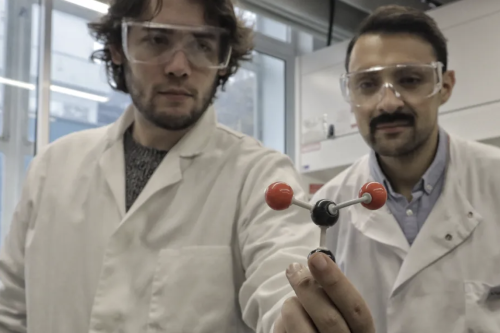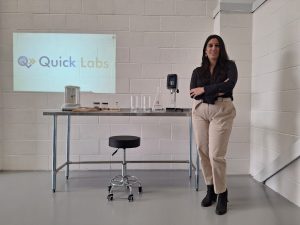Is driving growth through business investment a leap of faith?

Investing in early-stage businesses is often described as “a leap of faith”, because of the number of unknowns, especially when those businesses are aiming to be truly innovative and disruptive.

But in recent times it hasn’t just applied to pre-revenue and early-stage organisations, as the pandemic played havoc with the usual foundations for funding.

Pete Sorsby
Pete Sorsby, fund principal for Mercia Debt Finance, said: “As a debt fund, we typically lend to established businesses, because a business needs to be generating cash to service its debt.
“But during the pandemic there was a much greater sense of operating in the unknown.
“There was a degree where you were taking a bit of a leap of faith, because what those entrepreneurs were talking about doing was almost unproven. They were having to react on the spur of the moment.”
Eutechtics co-founder Armando Leal is running an start-up in Sheffield that is developing sustainable technologies that decarbonise key elements of the chemical industry.
He is trying to overcome the hurdle – which appears more like a catch-22 problem – of working outside the university innovation space to retain the IP, but currently being short of the evidence base needed to open doors and wallets.

Armando Leal, co-founder of Eutechtics
Leal said: “Mostly technology similar to ours, chemical tech, comes from universities, but that means that they own the full IP. The good thing about us is that we create this after uni, so the IP is with us.
“The problem that we have is, if we want to continue to own the IP, we require funding to jump to the next level. And there is not that leap of faith.
“Usually VCs and investors are really interested in us – a lot of them across the world – but they want to see that we pass that step that is essential for us. But for us to pass that step, we probably will need to collaborate with universities. We have been talking with them, but they are very aggressive, and that means that the IP will be lost.
“So in order for us to have the big jump and accelerate, we need that leap of faith if we want to continue with the IP, plus we need to collaborate together with institutions.
“We have been talking with a lot of VCs around the UK. When we start talking with VCs in the US they say, ‘So do you want to come? We have a lab here, test it.’ I ask ‘okay, but how much?’, and they reply ‘No, just test it, 2-3 months, just be here, see if it works, and then we continue’.
“I know that they would be taking a risk, I know there is that leap of faith, but it is there. That has been happening more often outside the UK, we have been having similar conversations with institutions in Germany, and it’s something that I cannot see in the UK.

Victoria Garcia, chief executive of BindEthics and Quick Labs
Victoria Garcia, is the co-founder of BindEthics, which has developed a patented bio-adhesive, and is building a laboratory business, Quick Labs, that is providing easier access to scientific space outside the universities.
She said: “Stop saying leap of faith, because it’s not a matter of a leap of faith – it’s a matter of [potential partners] understanding our technology.
“So when you say the Americans love it, it’s not because they had a leap of faith, it’s because they understand it, which is not found here. Don’t say leap of faith!”
American investors are often recognised to have a different risk appetite, usually illustrated by their willingness to accept failures as part of an entrepreneur’s development. But also the sector expertise can be harder to come by in the UK regions, compared with London or the international stage.

Simon Cunnington, British Business Bank
“NPIF II is deliberately broad because we’re trying to impact the whole of the North,” said Simon Cunnington, a director at British Business Bank.
“Sector-specific investors will have people who understand or understand it to a level enough to know whether it’s feasible, and then bring in experts.
“The bank does have some programs that look at life sciences, but it is later stage. It’s not at that really early stage.”







